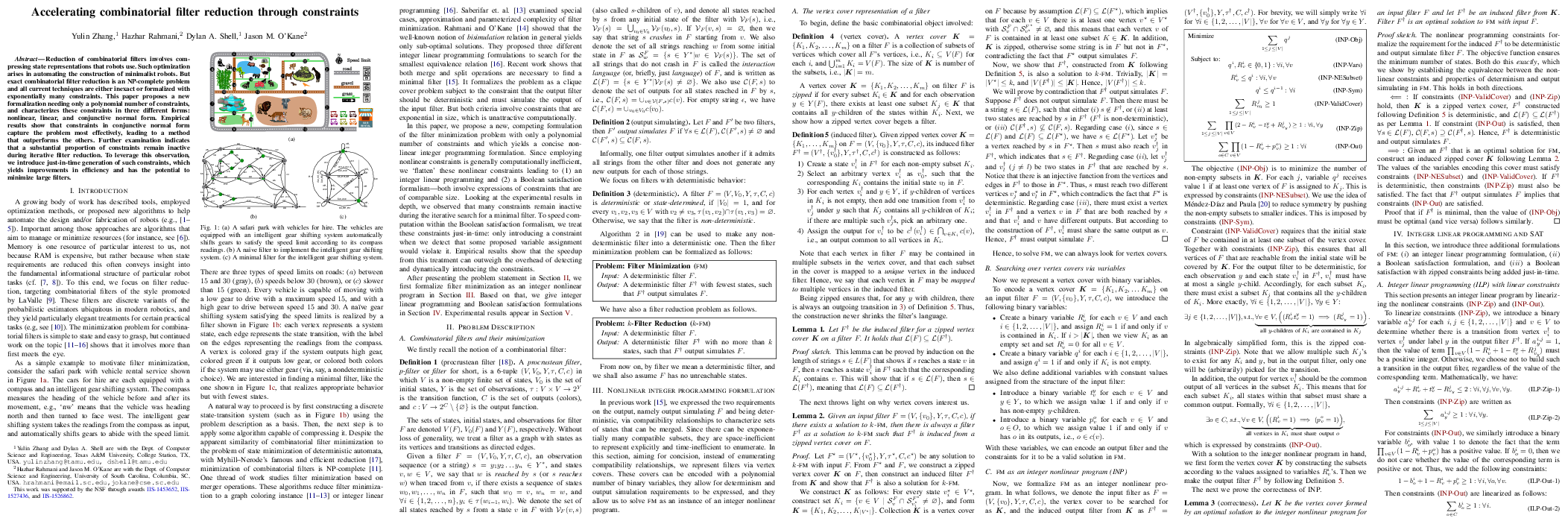 Yulin Zhang and Hazhar Rahmani and Dylan A. Shell and Jason M. O'Kane
Yulin Zhang and Hazhar Rahmani and Dylan A. Shell and Jason M. O'KaneAbstract Reduction of combinatorial filters involves compressing state representations that robots use. Such optimization arises in automating the construction of minimalist robots. But exact combinatorial filter reduction is an NP-complete problem and all current techniques are either inexact or formalized with exponentially many constraints. This paper proposes a new formalization needing only a polynomial number of constraints, and characterizes these constraints in three different forms: nonlinear, linear, and conjunctive normal form. Empirical results show that constraints in conjunctive normal form capture the problem most effectively, leading to a method that outperforms the others. Further examination indicates that a substantial proportion of constraints remain inactive during iterative filter reduction. To leverage this observation, we introduce just-in-time generation of such constraints, which yields improvements in efficiency and has the potential to minimize large filters.
@inproceedings{ZhaRah+21,
author = {Yulin Zhang and Hazhar Rahmani and Dylan A. Shell and Jason
M. O'Kane},
booktitle = {Proc. IEEE International Conference on Robotics and
Automation},
title = {Accelerating combinatorial filter reduction through
constraints},
year = {2021}
}
